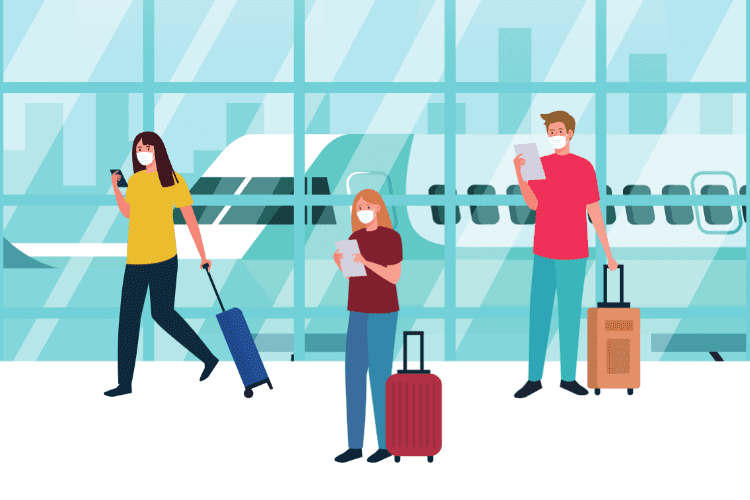How Will Travel Change After the Pandemic?

As we plan for the “new normal” in a post-COVID-19 world, it seems like some things might never return to normal and might also have long-term effects on everyday life. Work will be different since more people can work from home than ever before. Bars, theaters, and restaurants are still adjusting to attract as many occupants as possible safely. And perhaps no area has changed as much as the travel industry. Additionally, with the discovery of the Omicron variant, COVID rules and regulations continue to change worldwide.
Airlines have already taken significant measures to attract flyers. Most major airlines have eliminated change fees, giving travelers more flexibility with their bookings. While some airlines tried to end free changes, most have added them back due to the Omicron variant. Plus, people have already begun to re-think how and where they travel. When the pandemic finally ends, some things will return to their pre-2020 norms, but what might change permanently about travel?
Destinations
Many countries are reintroducing travel restrictions with the discovery of the Omicron variant. While these limitations will eventually be lifted, traveling habits may remain changed into the future.
“People will be more focused on local travel and travel within their own countries,” Caroline and Craig Makepeace, the founders of yTravelBlog, told RENTCafe. “They’ll be avoiding plane travel for some time, and so road trips will be popular. I think people will head to smaller towns and seek quieter and more isolated experiences in state and national parks.”
The Omicron variant will likely disrupt international travel this winter, and airlines will continue to take a hit. In addition, crowded, popular destinations may see less traffic in the future. Travelers are expected to shy away from crowds and may choose more nature-based vacations as a result.
Safety First
Hotels and airlines have taken serious measures to ensure that passengers and guests are as safe as possible. For example, hotels now offer an option to opt out of daily housekeeping services. Meanwhile, airlines sanitize all seats, armrests, and tray tables upon deplaning and before new customers board the plane for the next flight.
Safety measures are being extended in the entertainment industry as well. Universal Orlando, for instance, has introduced virtual lines, replacing typical lengthy queues for rides. Now, park visitors can log a time in advance and show up at an attraction when scheduled to avoid potential hours in close proximity to others. Trains, planes, and other modes of public transportation may shift further toward digitized boarding passes too, avoiding physical interactions or exchanges. You’ll likely be getting your temperature taken a lot more than usual before boarding anything or entering parks.
Cruise companies will also need to adapt, and some experts predict that lengthy cruises to nowhere might become obsolete. “I think in the beginning, we are likely to see more focus on shorter cruises and on going to places where we can do more to control the environment,” Royal Caribbean Cruises CEO Richard Fain told the Washington Post.
With the emergence of the Omicron variant, we expect safety measures to continue and cruises to look different for the foreseeable future.
Travel Insurance Plans
When the pandemic first broke out, many travelers were surprised to learn that pandemic concerns or complications are not typically covered by travel or trip insurance. While travel insurance is helpful in plenty of situations, consumers might be less inclined to purchase it in the future if they got burned this year. Moreover, travel insurance policies will need to become less complicated to alleviate future customer concerns.
“There’s going to be a lot more focus, rather than ticking a box and moving on,” Anna Gladman, the chief executive of nib Travel, told the New York Times. “People are going to be concerned about catching this, so they’ll want to know more about their products.”
The Bottom Line
We know that travel after the coronavirus pandemic (whenever that is) will be significantly different. Now, as the virus is still around and new variants are discovered, we see companies begin to shift and change policies for a post-COVID future. Over the next few months, we should expect changes and regulations to fluctuate depending on the seriousness of new variants. By the time you take your next trip, the entire experience might feel a bit foreign to you.









